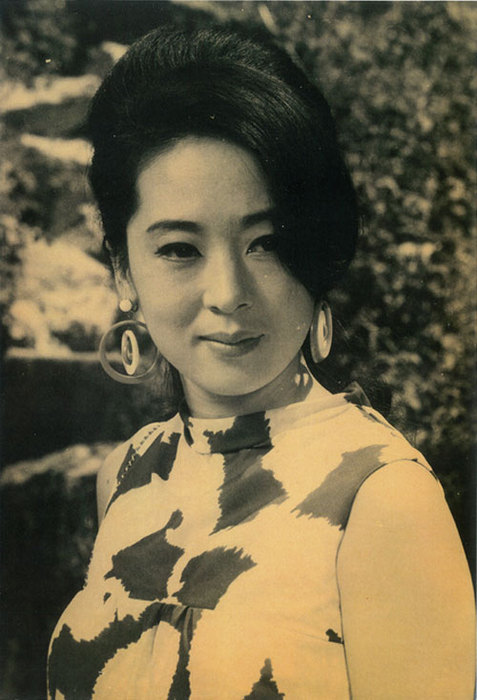Born KIM Myeong-ja in 1940, KIM Ji-mee is an actress that is commonly referred to by the Korean media as the “Korean Elizabeth Taylor” due to her resemblance to the American star, but also her complicate and widely reported love life. She was first noticed in 1957 by none other than legendary director KIM KI-young, while visiting the tearoom ran by one of KIM Ji-mee’s sisters where she would often hang around. Even though KIM Ji-mee had originally planned to go study i...
More
Born KIM Myeong-ja in 1940, KIM Ji-mee is an actress that is commonly referred to by the Korean media as the “Korean Elizabeth Taylor” due to her resemblance to the American star, but also her complicate and widely reported love life. She was first noticed in 1957 by none other than legendary director KIM KI-young, while visiting the tearoom ran by one of KIM Ji-mee’s sisters where she would often hang around. Even though KIM Ji-mee had originally planned to go study in the US, the director eventually convinced her to drop out of school to start an acting career and immediately cast her as the lead in his next film, <The Twilight Train> (1957). The following year saw her become a star thanks to <The Star In My Heart> (1958), the critically acclaimed screen adaptation of a popular serial novel, directed by HONG Seong-ki, whom she would marry soon after. As she gained recognition, she developed in the 1960s a strong rivalry with CHOI Eun-hee, especially when both played Chunhyang in different film adaptations of the eponymous musical folktale, KIM starring in HONG Seong-ki’s <The Love Story of Chun-hyang> (1961) and CHOI in SHIN Sang-ok’s <Seong Chun-Hyang> (1961). Not only were these films already inviting comparisons due to the fact that they were released 10 days apart, but they were also the first color cinemascope films to be made in Korea, and both movies were directed by KIM and CHOI’s respective husbands. SHIN and CHOI’s version ultimately got the upper hand. However, compared to CHOI Eun-hee and other popular actresses of that generation, KIM Ji-mee managed to stay longer in the spotlight. She reached the peak of her career around the turn of the decade, having been six times among the winners of the Popular Star Awards at the Blue Dragon Film Awards between 1965 and 1972. In 1975, she reunited with KIM Ki-young on melodrama <Promise of the Flesh> (1975), allowing her to nab Best Actress at the Grand Bell Awards. Her film appearances became increasingly scarce in the late 1970s, but that had more to do with the dismal state of the industry, subject to strict censorship by the Korean government. She later contributed to the revitalization of Korean films by founding in 1985 her own film production company, Ji-Mee Film. Her first production was IM Kwon-taek’s masterpiece <Gilsotteum> (1985), in which she also took the leading role. The film tackled a very sensitive matter, the reunification of family members separated during the war, to provide a bittersweet yet heartfelt examination of social divides. KIM Ji-mee delivered in this film one of her best performances, and as a result received top acting honor again at the Grand Bell Awards. She would later produce another of IM Kwon-taek’s films, <Ticket> (1986), in which she played the madam of call girls in a small harbor town. She made her last film appearance in LEE Jang-ho’s <Myong-Ja Akiko Sonia> (1992), which she also produced, before retiring from acting. She has played in more than 400 works throughout her career.
Less









